The Maker The Charles Causley Literary Blog
Adrian Wakeling: ‘The Good Father’
My name is Adrian Wakeling and I am currently studying an MA in Creative Writing at Bristol University. I have been writing for many years and in 2014 was a finalist in the Manchester Short Story Competition.
After no word for ten years, father had written to say he was very ill. The religious cards arrived at regular intervals thereafter, full of garish symbolism and pompous piety. I figured he had an account to settle with the fella upstairs. I didn’t take the bait. Mari did. She persuaded me to go and see him before it was too late. Mother wasn’t happy and by the time we had finished arguing with her and booked the tickets, he had passed away. We went anyway but the story within the story is that Mari had a fling with one of father’s old drinking buddies. I regarded it as an aberration, a wasted night she’d surely rather forget.
When I met Finn Fitzpatrick in the lane near the old man’s place, shaking my hand over-firmly in grease stained overalls, he asked after Mari and it should have made me suspicious. I reckon he must be three times our age if he’s a day. She didn’t tell me about what happened till we got back. I wasn’t in the pub on the night in question and haven’t seen the grainy video of them in the car park. Apparently, the landlord milked it for all it was worth: “I’ve been watching the footage of you two,” he told Mari, “sucking each other’s faces off. The lucky old dog.”
Mari told me this in a matter of fact way, as she played with her thick curly hair. She started saying quite lot after that first trip to Ireland, even more than usual, as if she liked the idea of being an open book all of a sudden. She’d decided she didn’t know herself, didn’t know anyone, didn’t know what mattered. Any of it. And she wanted everyone to find out with her. Which is why she began seeing a therapist for what she called ‘me issues’.
Something father had said in one of his cards had snared us both though. He wrote as a ‘p.s’: “what I mean to say is that I know I have not been a good father.”
The idea of what a good father might be started to loom large for us, pointing its finger accusingly. Telling of our want. Of our need. Of our hunger.
Historically (that sounds good!), I have a more detached take on him. Cold you might say. Which suits me. I see him as an absentee landlord – an absentee landlord of old, but without the title, lands, money or influence. As far as I am concerned, the only question to be answered is ‘did he have bad intentions, or simply none at all?’
Speaking of questions, I knew the first question the therapist would ask Mari, regarding the affair, was ‘do you think you were looking for a father figure, to replace the one you lost?’
I think this without saying it as we sit chatting in mum’s snug terrace in Stoke Newington. It feels odd having grown up conversations when we have both clearly put the real world on hold – I am taking a year off before college and the grim realisation that, despite my reservations and the embarrassment of telling people, I will end up studying accountancy; and Mari is, similarly, taking stock. She blew out of college after her first year studying English Literature, because ‘who wants to read six Jane Austin novels in one week?’ I’m not sure what she expected. She talks of travelling and writing a novel once she has sorted herself out. This is typical of recent interactions between us:
“Shall I tell you what my therapist told me last night?”
“That will be forty pounds please?”
“Ha ha. Why do you always have to be so cynical?”
“Ok, I’m sorry. What did your therapist tell you last night?”
“That life is like a bird …”
“What!”
“Stop laughing.”
“I’m not laughing. I was just wondering, what kind of bird?”
“It doesn’t matter.”
“It matters to me. Is life like an eagle or a sparrow?”
“An eagle for me and a sparrow for you.”
“Fine, thank you.”
“So, the bird flies through an eternity of darkness … “
“Cheerful stuff.”
“Then afterwards it enters a narrow patch of light.”
“It’s not really an eternity of darkness then is it?”
Mari is making a slow waving motion with her arm, from one side of the living room to the other.
“Before entering an eternity of darkness once again.”
“I presume that the darkness represents the time before we are born and the time after we die,” I say. “Basically, you are a long time dead, so make hay while the sun shines. I could have told you that for nothing.”
If she was alluding to the notion that our trip to Ireland was some form of enlightenment, then I was worried. The impression it had made on me had been unfavourable to say the least. I could see it laid out in my mind’s eye – the semi-derelict house holding memories no one wanted on that ugly strip of land between runways north of Dublin airport. It stank of too many bachelor habits – unwashed socks, uncleaned toilets, fried food and dust left to thicken. I hated the whole environ too, the drab, flat, wetness; the smell of sileage, the way even the most mundane scene engaged you in a staring competition. How the wind found you out. I hated it and yet she loved it.
“It will go one of two ways,” she had joked before her second, return trip. “I’ll either find myself or lose myself; but…” she paused for dramatic effect, “as I have lost myself several times already, I haven’t got much to lose, have I?”
I smirked, but only to cover my foreboding. And because what she said was funny. I am the catastrophist. She knew that I knew that she had a lot to lose – like her sanity, for example, not to mention her relationship with mother – and she also knew, ever the optimist, that it didn’t matter what my theoretical answer was to her rhetorical question, she was hell bent on the trip.
“I’m taking this journey,” she said, kissing me on the cheek at Kings Cross, “to end the journey.” I tell her to call me regularly. When she lands, when she goes out, when she meets anyone, before she does anything rash and stupid. Definitely before. Mother doesn’t know what happened with Mr Fitzpatrick. Mari’s line with me is that she is not going back because of him; she claims she may not even see him. “I just want to get another feel for the lie of the land.”
I don’t get it because there’s nothing to see. In the five years he was vaguely around, how many birthday presents did our so-called father buy? Christmas presents? How many cards? When did he ever pick us up from school? Take us to the cinema? A kick about in the park? Read bedtimes stories? Take any interest in our hobbies or friends? He’s a complete blank, that’s what he is, a vacuum. And so is the dismal place he holed up in to breathe his last. A few bearded young men hung around at the eerily subdued funeral reception, looking awkward, giving us quick sideways glances. They drank orange juice, chain smoking through stained fingers. If anyone was bereft, they were.
It occurred to me that Mari’s tactic – for I have a naive belief that tactics nearly always justify actions – might have been to insult father’s memory by shagging his best mate. It amuses me, though, the whole notion of a father ‘figure’. I immediately think of the toy soldiers I collected. They were, similarly, not-to-scale, made of some crappy plastic and, by the time you finished the elaborate painting, soon discarded.
Typically, she doesn’t call me, so I call her. Her phone goes straight to voice-mail. I send the odd text, trying to sound upbeat and casual.
“You’re not going to want to hear this,” is her opening statement when she finally gets in touch.
“The Pope isn’t a Catholic?” I offer, happy to be labelled shallow and flippant if it means I can avoid being confronted with ‘life’s truths’. These are everywhere since Mari started therapy, hiding behind each proverbial hedge, ready to leap out. They’re as welcome as flashers. Life should keep its truths to itself. In my humble opinion.
“Father was a good man.”
“Err…”
“Listen. He helped people. He gave beds to local vagrants, young men having a hard time. Fed and looked after them. Got them back on their feet. Gave them money. I know, I know, some of the rest of it is true. He drank too much, and he probably didn’t treat mum very well…”
“Probably.”
“We don’t know everything.”
Mother was snooping around trying to eavesdrop on our call. She had been seething ever since father’s first letter arrived. It hadn’t helped that it had been addressed to Mari and I, with no mention of her. Having haunted us for so long, the selfish waster over the Irish Sea – we dreaded becoming like him, speculating morbidly about the genes we might have inherited – he had made her the ghost. It was undeniably clever. And now, her children had been hypnotised by what they never had. I decided not to tell mother about the theory of ‘the good father’; and hoped Mari would have the same sense when she returned.
Mari was back as promised within the week and she undoubtedly seemed calmer. But she couldn’t keep her mouth shut. We stayed up late chatting. Mother sat on the stairs in a role reversal of the usual parent-child dynamic. When I came down for breakfast the next morning there was a smell of incense. Mother had created a shrine on the dining room table. A picture of father was the centrepiece – he looked bleary and vacant. It was surrounded by lite candles, the heads of daffodils and bluebells, roughly chopped from the garden, and a burning josh stick.
Mother’s a nurse. And she follows the stereotype most people will have of that profession: bustling, practical, unflappable, incredibly caring. But the fact that her clever, beautiful daughter was finding her adult feet in the old man’s back yard, with his cronies, well, it was too much for her to take.
Over the next few days the conversations between Mari and I followed the following train of thought: how could you be good to strangers, but treat your closest family like crap? Which led us to an inevitable speculation, given our religious upbringing (mother had once said, rather tipsy on red wine, that Catholicism was the third good thing father had given her, after us two): namely, would Jesus have been a good father? It didn’t take us long to conclude that this was unlikely, as he was both erratic and unpredictable – spending long periods constantly on the move, followed by spells sitting stubbornly in one place; either communicating deep thoughts or not saying very much at all. And he was not a very good judge of character. In his world view, good too easily became bad; bad too easily became good. We agreed that, above all else, children need consistency, quality time with their parents or carers and encouragement – the holy trinity mother had always provided. This led us, naturally enough, to decide that God wasn’t a very good father. There is no need to elaborate on this point. You’ll have figured out by now that we are both lapsed Catholics, much to mother’s chagrin.
Since the incident with the mock shrine, things have settled back into a routine of sorts. Mari has decided to return to college and resume acquaintance with all those Jane Austin characters as they promenade along Bath’s Royal Crescent. I have started doing the family accounts for mother as a precursor to fully coming out as an accountant (this is the real take-out from all this!). We have no plans to return to Ireland. Mother is clearly relieved but tries not to let it show. To all intents and purposes, our ‘Irish problem’ has been resolved. For now.







